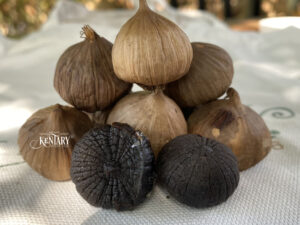Cauliflower is an extremely healthy vegetable that’s a significant source of nutrients. It also contains unique plant compounds that may reduce the risk of several diseases, including heart disease and cancer. Additionally, it’s weight loss friendly and incredibly easy to add to your diet. Here are science-based health benefits of cauliflower.
1.Here is some basic nutrition information on cauliflower

Cauliflower is an extremely healthy vegetable – google image
A cup of raw cauliflower contains the following:
- Calories: 27
- Total fat: 0 g
- Protein: 2 g
- Carbohydrate: 5 g
- Sugars: 2 g
- Fiber: 2 g
You also get about 60% of your daily vitamin C needs and 14% of your daily dose of bone-building vitamin K, as well as healthy doses of folate, vitamin B6 and potassium.
Cook cauliflower, though, and you’ll lose some of those vitamins and minerals. Researchers found that boiling and blanching cauliflower caused the largest losses (decent amounts of the nutrients leached into the water), while steaming, stir-frying and microwaving preserved the most nutrients and disease-fighting phytochemicals.
- Science-based health benefits of cauliflower
- May Aid in Weight Loss
Cauliflower has several properties that may help with weight loss. First, it is low in calories with only 25 calories per cup, so you can eat a lot of it without gaining weight. It can also serve as a low-calorie substitute for high-calorie foods, such as rice and flour. As a good source of fiber, cauliflower slows digestion and promotes feelings of fullness. This may automatically reduce the number of calories you eat throughout the day, an important factor in weight control. High water content is another weight loss friendly aspect of cauliflower. In fact, 92% of its weight is made up of water. Consuming lots of water-dense, low-calorie foods is associated with weight loss.
2.Lower risk of heart disease and cancer
.jpg)
The compounds in cauliflower could help keep cancer from developing – google image
Although its coloring is different (i.e., it’s a lot less vibrant), cauliflower is a part of the crucifer (Brassicaceae) family and so is a relative of broccoli, Brussels sprouts, cabbage, kale, etc. Eating cruciferous vegetables has been linked with lower risks of heart disease and cancer, which are the two leading causes of death in the U.S. There’s even research that suggests the compounds in cauliflower and other crucifers could help keep cancer from developing in the first place.
3.Good Source of Antioxidants
Cauliflower is a great source of antioxidants, which protect your cells from harmful free radicals and inflammation. Similar to other cruciferous vegetables, cauliflower is particularly high in glucosinolates and isothiocyanates, two groups of antioxidants that have been shown to slow the growth of cancer cells. In test-tube studies, glucosinolates and isothiocyanates have been shown to be especially protective against colon, lung, breast and prostate cancer. Cauliflower contains carotenoid and flavonoid antioxidants as well, which have anti-cancer effects and may reduce the risk of several other illnesses, including heart disease. What’s more, cauliflower contains high amounts of vitamin C, which acts as an antioxidant. It is well-known for its anti-inflammatory effects that may boost immune health and reduce the risk of heart disease and cancer.
.jpg)
Cauliflower is quite high in fiber – google image
Cauliflower is quite high in fiber, which is beneficial for overall health. There are 3 grams of fiber in one cup of cauliflower, which is 10% of your daily needs. Fiber is important because it feeds the healthy bacteria in your gut that help reduce inflammation and promote digestive health. Consuming enough fiber may help prevent digestive conditions like constipation, diverticulitis and inflammatory bowel disease. Moreover, studies show that a diet high in fiber-rich vegetables like cauliflower is linked with a lower risk of several illnesses, including heart disease, cancer and diabetes.Fiber may also play a role in obesity prevention, due to its ability to promote fullness and reduce overall calorie intake
Cauliflower provides some powerful health benefits. It is a great source of nutrients, including a few that many people need more of. What’s more, cauliflower is easy to add your diet. It’s tasty, easy to prepare and can replace high-carb foods in several recipes.
Source: Healthline, Eatingwell
READ MORE
-
 ROASTED BINH PHUOC CASHEW WITH CHEESEVND100,000 – VND490,000
ROASTED BINH PHUOC CASHEW WITH CHEESEVND100,000 – VND490,000 -
 SOFT DRIED POMELO PEEL WITH HONEYVND115,000 – VND395,000
SOFT DRIED POMELO PEEL WITH HONEYVND115,000 – VND395,000 -
 SOFT DRIED GRAPEFRUIT PEELVND95,000 – VND315,000
SOFT DRIED GRAPEFRUIT PEELVND95,000 – VND315,000 -
 SOFT DRIED POMELO PEELVND115,000 – VND395,000
SOFT DRIED POMELO PEELVND115,000 – VND395,000 -
 SOLO BLACK GARLICVND195,000 – VND740,000
SOLO BLACK GARLICVND195,000 – VND740,000
- START CLEAN EATING WITH 6 USEFUL TIPS
- 5 HEALTHY SNACKING TIPS TO HELP YOU EAT CLEAN
- SIX THINGS THAT CAN HAPPEN WHEN YOU DON’T EAT ENOUGH FIBER




